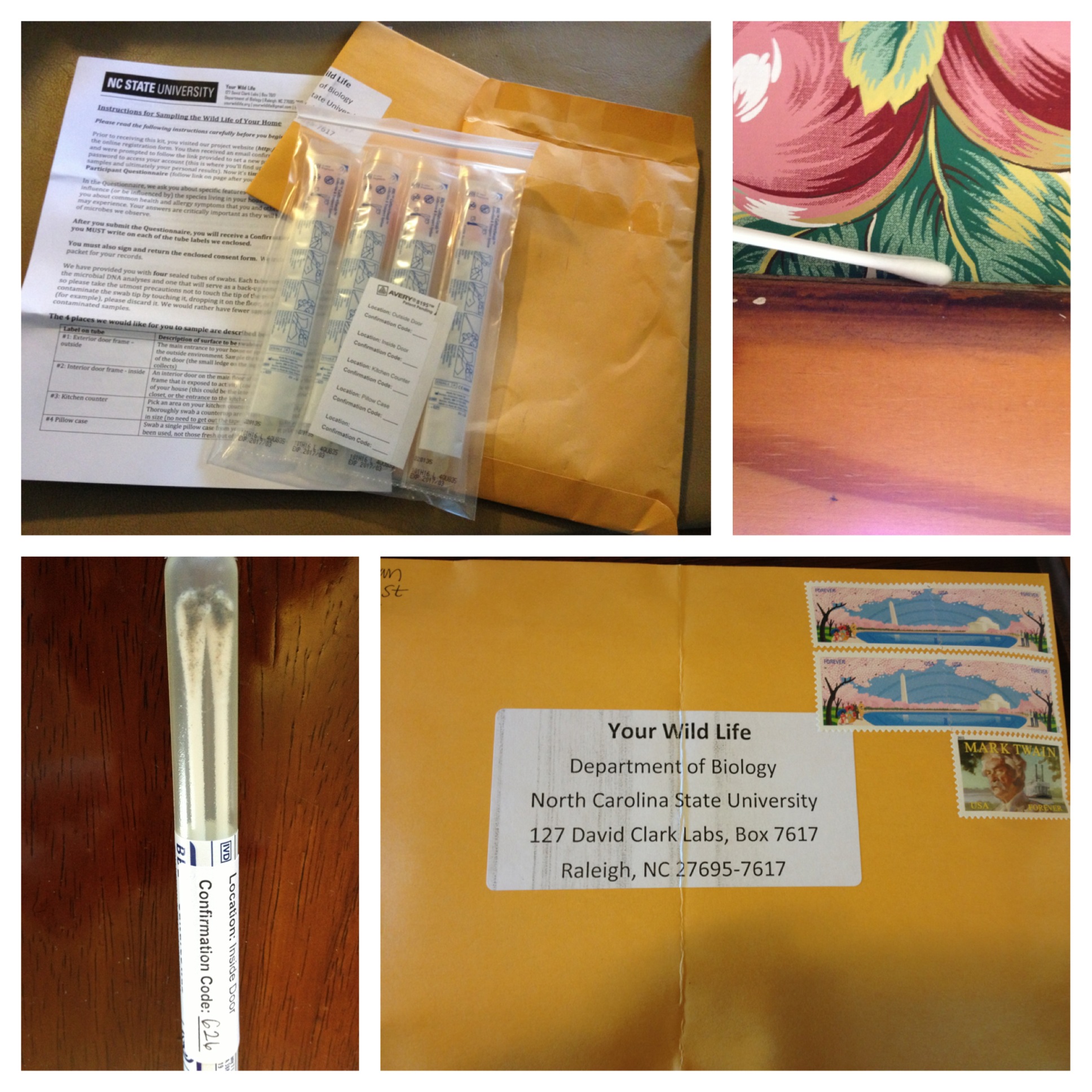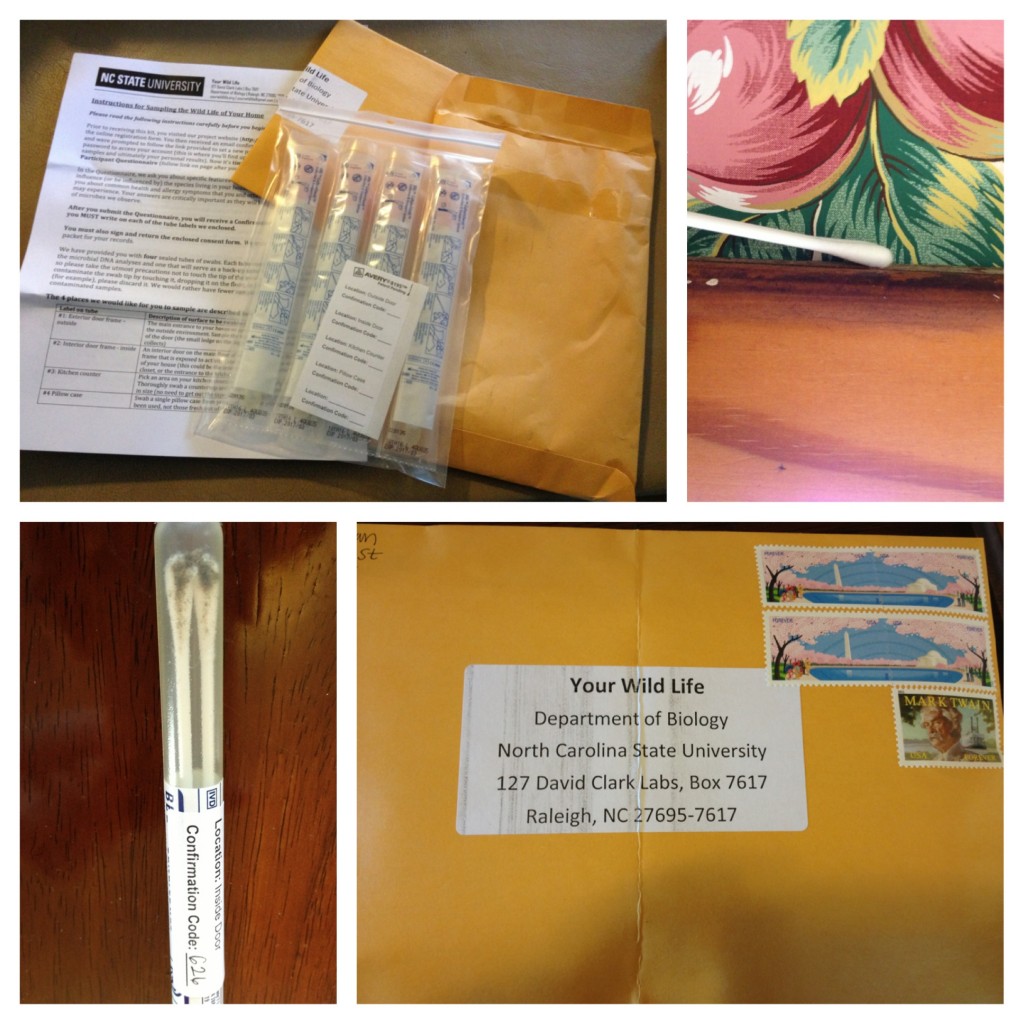Are you a scientist?
Interdisciplinary research brings in collaborators from different backgrounds. Each scientist approaches a problem with a different toolkit of experience and a different perspective. When we think of scientists we tend to think of a solitary activity – one person in a lab pipetting some sort of liquid from one container to another. The data collection is highly controlled and taken by one person. This is similar to the image we have of a philosopher sitting in his chair doing thought experiments. There is a movement called Citizen Science that is turning this perception on its head. While Citizen Science has many definitions depending on the specific project, I think the best definition is:
“[Citizen Science is defined as]…scientific activities in which non-professional scientists volunteer to participate in data collection, analysis and dissemination of a scientific project…” (from OpenScientist)
The picture above is a microbe collecting kit that is part of the Wild Life of Our Homes project at North Carolina State University. It is one of many projects that actively involves citizens in the data collection. What is really unique about this project is that each citizen scientist has a unique username and password and can actually access the data that is acquired from their samples by logging into the website. So what does all of this have to do with philosophy?
For one, citizen science breaks down the laboratory walls to reveal that science is accessible. A citizen scientist is considered a collaborator, not a data-collecting grunt. They can pose hypotheses, engage in discussions about what the data mean and even outsmart the scientists behind the projects. It’s about introducing more perpectives to further reduce bias since scientists attempt to be as objective as possible when working on projects. Additionally, these projects are based on observations or samples that are taken in the everyday world of the citizen scientist, be it birds outside a window or processing data that could find aliens.
Secondly, as we explore the field of experimental philosophy we open the doors for citizen philosophers to shed light on our perceptions and perspectives. This movement directly defies the “armchair” philosopher that relies on a priori justification (or justification independent of experience) while developing ways to measure how people “know” things and make moral decisions. The data collection in experimental philosophy is generally done by surveys and also coordinates with some methods done by psychology researchers. An example of experimental philosophy that you may have participated in is the Moral Monday posts over here at Philosophy Matters.
Last we draw some parallels with science and philosophy. Historically our greatest scientists were also philosophers – Aristotle (established science as a collective subject), Leibniz (developed infinitesimal calculus independent of Newton) and Francis Bacon (applied inductive reasoning versus a priori justification to science) to name a few. Before we can “do science” we must also conceptualize the contributions of the research, the effects on the environment, the ethical decisions that must be made and especially – we must ask questions and systematically answer those questions with objective research based on reason. We can draw these parallels between science and philosophy:
In science we use our perspectives to enhance our research.
In philosophy we use our research to enhance our perspectives.
So consider involving yourself in a little citizen science, you never know – your contribution could lead to a great discovery!
If you are still interested in The Wild Life of Our Homes project, check out my blog post about my experience with the project!

